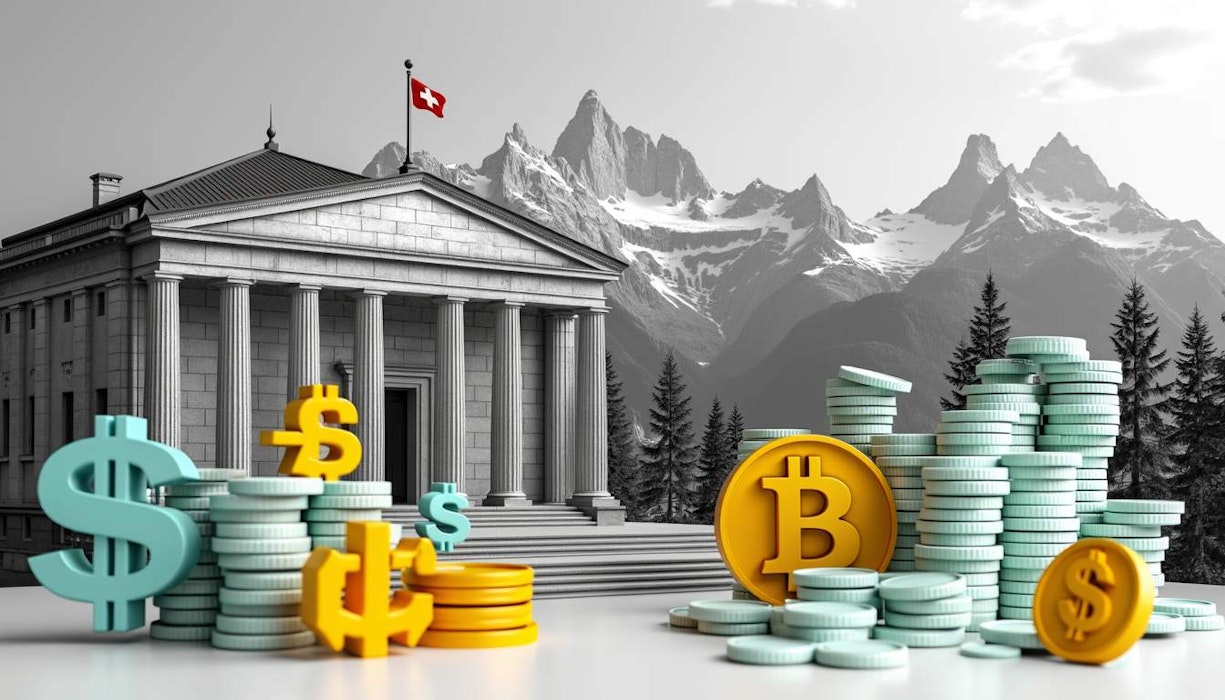Switzerland is making headlines with an extraordinary proposal: the Swiss National Bank (SNB) wants to add Bitcoin to its national reserves. The ambition? To tap into Bitcoin’s decentralized nature and bolster economic sovereignty. This bold move could change how countries manage their financial stability and digital assets.
The Proposal’s Genesis
The proposal was launched on December 31, the brainchild of Giw Zanganeh, a senior Tether executive, and Yves Bennaïm, a key figure in the Swiss Bitcoin nonprofit think tank 2B4CH. Their aim: to create a "financially sound, sovereign, and responsible" Switzerland. The SNB's first institutional bite into Bitcoin could mark a new chapter for the adoption of cryptocurrency in the USA.
Bennaïm's organization spent months preparing the documents, ultimately determining that the time was ripe for a proposal like this. Their previous attempt had faltered in a 2021 filing, but with an ever-growing 2B4CH membership, they felt now was the time.
Details and Challenges of the Proposal
The proposal calls for the constitutional amendment of Article 99 Paragraph 3 to include Bitcoin as part of the National Bank's reserves. The exact language proposed is:
“The National Bank builds up sufficient monetary reserves from its own earnings; part of these reserves are made up of gold and Bitcoin.”
To initiate the change, they must gather 100,000 signatures by June 30, 2026. With a population of 8.92 million, that means around 1.12% of locals will need to support the proposal.
Switzerland’s Existing Bitcoin Landscape
Switzerland is no stranger to Bitcoin. Cities like Lugano have embraced Bitcoin, and around 260 merchants already accept it, according to data from BTCMaps. However, not everyone is sold on this vision. Last month, SNB Chairman Martin Schlegel raised concerns about Bitcoin's efficiency as a payment method and the staggering energy consumption required to secure the network.
Economic Impacts of the Proposal
If the SNB successfully integrates Bitcoin into its reserves, the implications could be enormous.
Financial Independence
Bitcoin’s decentralized and neutral qualities may allow countries to gain greater financial independence. This could create a buffer against traditional financial systems and economic disturbances.
Efficiency Gains
The efficiency of Bitcoin transactions could enhance operational speeds and decrease costs, especially beneficial for a country known for its financial expertise.
Bitcoin as a Buffer
Bitcoin's scarcity and inflation-resistance could serve as a hedge against economic uncertainty, akin to gold. It operates independently of monetary policy or geopolitical shifts linked to fiat currencies.
Monetary Policy Challenges
However, the widespread adoption of Bitcoin could diminish the efficacy of monetary policy. Central banks could face new challenges in controlling money supply and interest rates, potentially leading to financial instability.
Environmental Consequences of Cryptocurrency Adoption
The environmental impact of adopting Bitcoin as a reserve asset is largely negative. Mining Bitcoin consumes enormous amounts of energy, much of which is derived from fossil fuels.
This results in significant carbon emissions, and Bitcoin mining produces an amount of electronic waste comparable to the Netherlands.
If central banks adopt Bitcoin, it would likely increase demand and energy consumption, exacerbating these environmental consequences.
Global Ramifications and Comparisons
Countries like the US are considering Bitcoin adoption, though it would be through the Treasury rather than a reserve. Other countries, like Brazil and Poland, are also looking at the idea.
Geopolitical Dynamics
Bitcoin's potential to evade economic sanctions could alter global finance and the balance of economic power, making it a strategic tool for nations.
Other Nations' Approaches
Liechtenstein has plans to use Bitcoin for government services, and Argentina is discussing legislation to regulate the cryptocurrency market to maintain decentralization.
Summary
The Swiss National Bank's proposal to include Bitcoin in national reserves is a bold and unprecedented move that could redefine how nations manage their digital assets. While there are clear advantages in terms of economic independence and efficiency, the environmental and monetary policy risks are significant. As more countries consider adopting Bitcoin, the world might see a monumental shift in the financial landscape.
